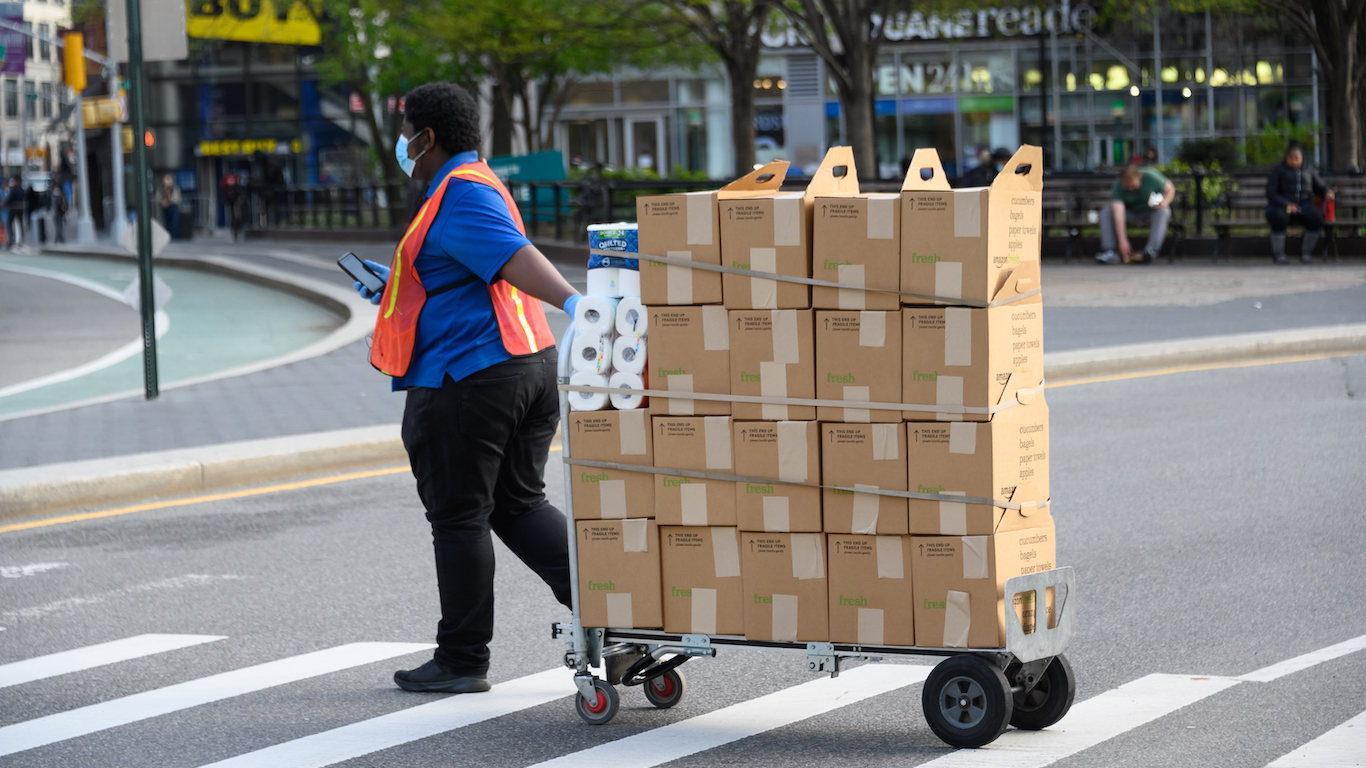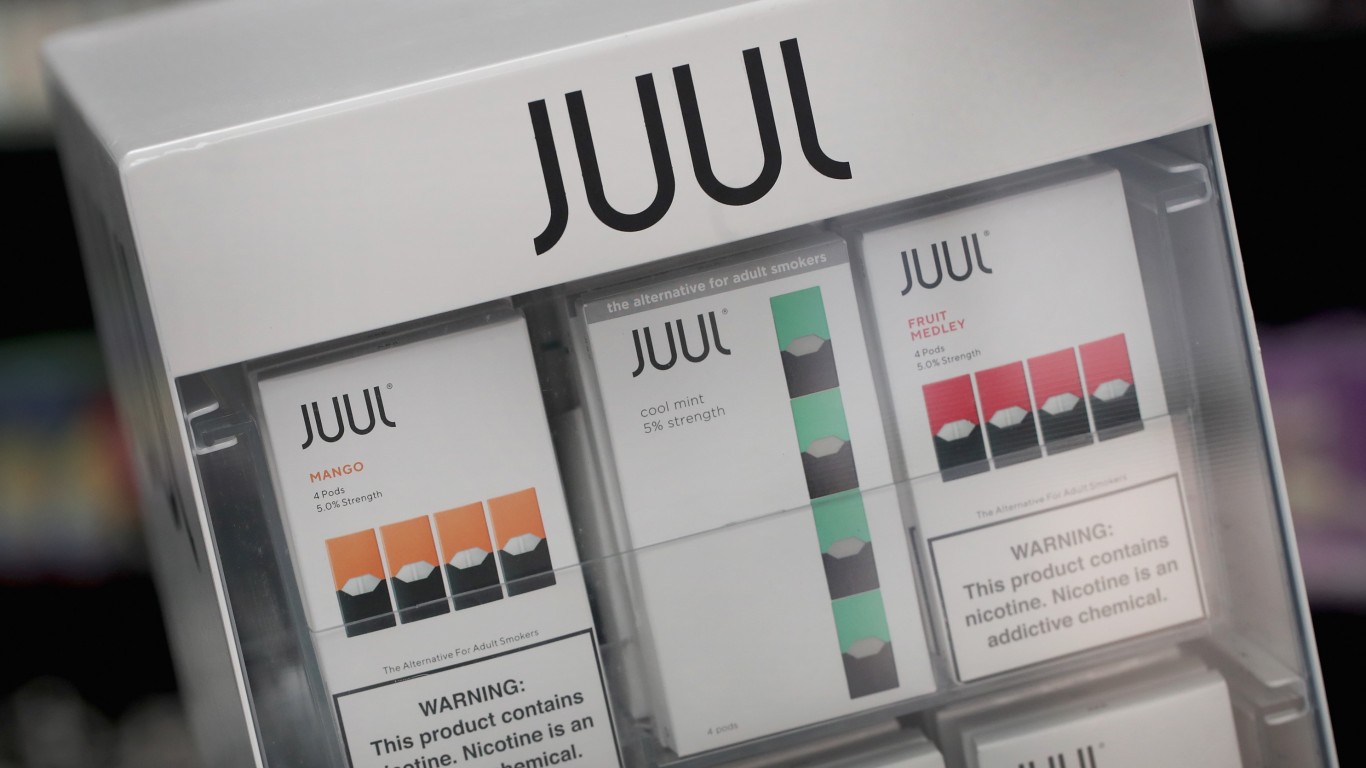
Concerns about the coronavirus should continue to boost Amazon.com Inc. (NASDAQ: AMZN), which has flown high throughout the pandemic.
The nation’s top infectious disease expert, Dr. Anthony Fauci, warned the Senate Tuesday that reopening the U.S. economy too quickly could lead to “suffering and death that could be avoided.” It was a sobering moment as America’s businesses try to regain some sense of normalcy after most of the country closed down in March.
Some governors are reversing shutdown orders even without thorough plans for combatting the virus, such as strict social-distancing rules, contact tracing and aggressive testing. Health experts warn that all of this is needed to prevent a second wave of coronavirus cases.
White House guidelines suggest states only reopen after seeing a “downward trajectory” of documented COVID cases or positive tests. Most of the states reopening haven’t yet hit that target.
The U.S. death toll from the COVID-19 pandemic has topped 80,000, with Fauci and others suggesting the actual number is likely much higher. New York City and other areas say a number of recent deaths were likely caused by the coronavirus even if they weren’t officially classified as such. There are 1.38 million confirmed cases in the U.S.
In an ominous warning sign, some countries that reopened their economies are reporting new virus outbreaks. Wuhan, China, where COVID-19 was first reported last year, has largely reopened after getting the virus under control. But six new cases emerged in the past few days.
Similarly, South Korea has delayed the reopening of schools after a new outbreak in Seoul. South Korea has been viewed as a model for how to handle COVID-19, thanks to aggressive contact tracing and effective social distancing.
If these countries, which seemed to have the virus under control, are seeing new outbreaks, what will happen in the U.S., which still has a high number of new cases reported daily? Some analysts warn that a wave of big outbreaks could lead to new shutdowns and more economic uncertainty.
Strong Outlook
Whatever happens with the COVID-19 trajectory, stock market analysts say Amazon shares look to outperform in the long term. Even if things return to “normal,” some portion of the population is likely to mostly stay at home after things reopen. They’ll continue to largely shop online and consume entertainment from streaming services, such as Amazon Prime.
In first-quarter earnings reported last month, the e-commerce empire built by Jeff Bezos said that it had $5.01 in earnings per share (EPS) and $75.5 billion in revenue, compared with consensus estimates that called for $6.25 in EPS and $73.6 billion in revenue. In the same period of last year, Amazon reported $7.09 in EPS and $59.70 billion in revenue.
As for guidance, the company expects to see net sales in the range of $75 billion to $81 billion, and income ranging from an operating loss of $1.5 billion to an operating profit of $1.5 billion in the second quarter.
That loss is possible because the company says it will spend $4 billion in response to COVID-19. Some Amazon workers have contracted the disease, resulting in a few protests over worker safety. The company says it will spend $300 million in the next quarter to develop testing capabilities for its workforce.
Amazon stock is near its 52-week high of $2,475, and is up nearly 30% year to date. In comparison, the S&P 500 is down over 10% for the same period.
A New Movie Play?
Amazon was also in the news this week after the Daily Mail reported that it was considering purchasing AMC Entertainment Holdings Inc. (NYSE: AMC). AMC stock jumped sharply on the speculative report.
With Prime and Amazon Studios, Amazon has a growing video and entertainment production business. Acquiring a theater chain would afford Amazon, or its streaming competitor Netflix Inc. (NASDAQ: NFLX), the opportunity to screen original releases in a traditional setting and control release schedules.
And discounted movie tickets might be offered as an additional perk for Amazon Prime subscribers, in the same way that Prime members get discounts at Whole Foods stores. Amazon purchased the upscale grocery store chain in 2017.
The pandemic could hasten the disruption of the movie industry, which has been moving more toward streaming services. New releases online could become the new norm.
Find a Qualified Financial Advisor (Sponsor)
Finding a qualified financial advisor doesn’t have to be hard. SmartAsset’s free tool matches you with up to 3 fiduciary financial advisors in your area in 5 minutes. Each advisor has been vetted by SmartAsset and is held to a fiduciary standard to act in your best interests. If you’re ready to be matched with local advisors that can help you achieve your financial goals, get started now.
Thank you for reading! Have some feedback for us?
Contact the 24/7 Wall St. editorial team.
 24/7 Wall St.
24/7 Wall St.
